Your Personal Effectiveness
As an individual, you are not simply who you are at work. We all have many roles in life – a child, a partner or parent, a colleague, friend and citizen, both of a country and increasingly, of the world. To lead a balanced and successful life, you need to assess and improve all your roles – you need to be more effective.
To become more effective requires a mindset willing to learn and grow, develop and excel, not versus others, but against your own potential and expectations. This mindset starts from within and starts with self-awareness. The inner core of any person is their character, which is the sum of all their traits and ethical values. This begs the question – what are your values and what kind of person do you want to become? Ask yourself objectively, do you epitomise good character through such values as integrity, service, humility or excellence?
Character can be developed, but you need to want this, to take control of your life, know where you are heading, and finally, you need the tools and practical steps to get you there. This journey requires some changes in perspective, what we call paradigm shifts. There are four fundamental shifts needed – that of possessing a growth outlook, the fact that you are in control of more than you think, subscribing to an abundance mentality, and most importantly – accepting that your character is at the heart of all things.
The question of control and character starts with four choices that you have to make every day in every circumstance – how you react to a given situation, your choice to act, and your choice of principle and purpose. Once you have realised the level of control that you do have, your view of the world and your role in it will start to become clearer and you can begin to write your own script, rather than have it written by others.
When writing your own script there are three steps needed to follow: the first is to become proactive, then determine your vision and thirdly to prioritise your goals to get there. To develop yourself, you need to be proactive and take responsibility for your life and the choices you make – you need to believe that you can control many things and those things you cannot control, you can influence. If neither of these options are possible, then you must accept them, without resistance.
The question of vision is an obvious one – if you do not know what harbour you are heading for, no wind is the right wind. Having established your goals in every role, they then need to be prioritised – you need to say no to some things, in order to say yes to the ones that are most important. Where your vision may be your destiny, the journey or road map needs to be planned and implemented.
Aristotle once wrote that ‘we are what we repeatedly do. Excellence then, is not an act, but a habit’. Effectiveness is therefore achieved through the right habits, be they personal, professional, moral, social or habits of faith, meditation, happiness or even will power. They are all habits, where a habit is a routine or practice performed regularly so that it becomes an automatic response to a specific situation. To assist good habit formation, there is a simple science that escapes many of us but ensures that good habits stick and bad habits are thwarted.
There are many tools and character traits to improving habits, from reinforcing your identity, compounding small habit gains to build confidence, and ending with the agonising truth that sustaining habits requires self-discipline and deliberate practice. The habit of meditation helps many of these steps. Meditation or mindfulness training develops a clear mind, more focused on the here and now and less on the past or the future – LaoTzu wrote: “If you are depressed, you are living in the past. If you are anxious, you are living in the future. If you are at peace, you are living in the present.”
Once you have developed yourself from within, you are better positioned to develop the habits needed to improve interpersonal relationships. This is done by interaction and not introspection – you need to find new relationship thinking based on creative synergies and the skills of empathetic listening – this is not a technique, it is an entire philosophy of human interaction and requires personal confidence to co-operate and a relationship of trust. These values are the core of emotional intelligence, which can also be developed. It is called building character, becoming mature and taking responsibility for your own development.
You are your most important asset, and so you must preserve and develop yourself along physical, mental, social and spiritual dimensions. If you subscribe to the logic of this video, you are already on the right path to improved personal effectiveness and balanced self-renewal.
Victor Frankl wrote: ‘When you are no longer able to change a situation, you are challenged to change yourself’. We welcome you to pursue self-efficacy through this tailored masterclass of timeless principles.

